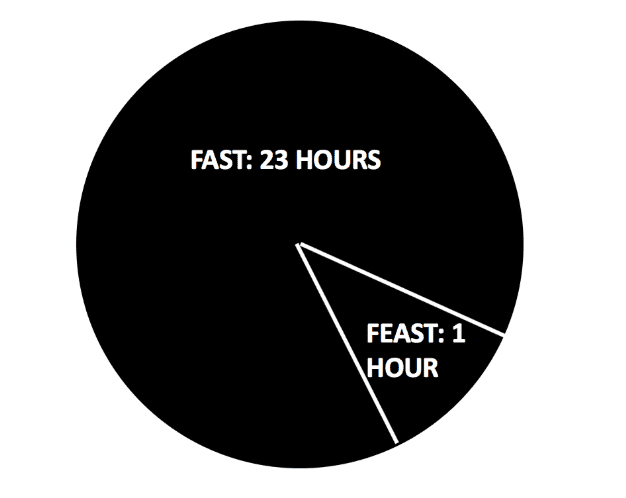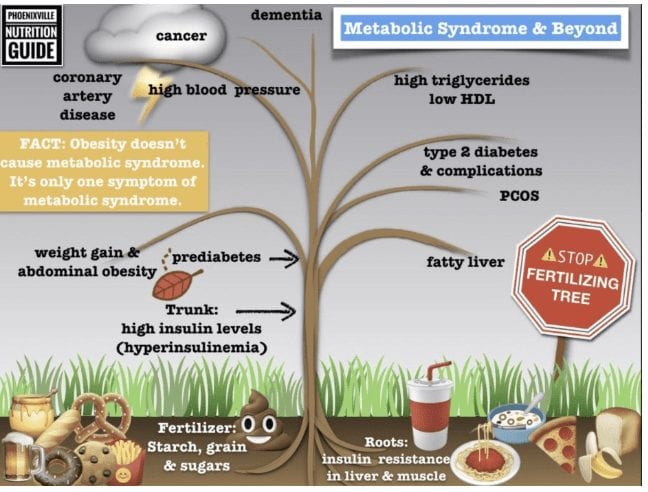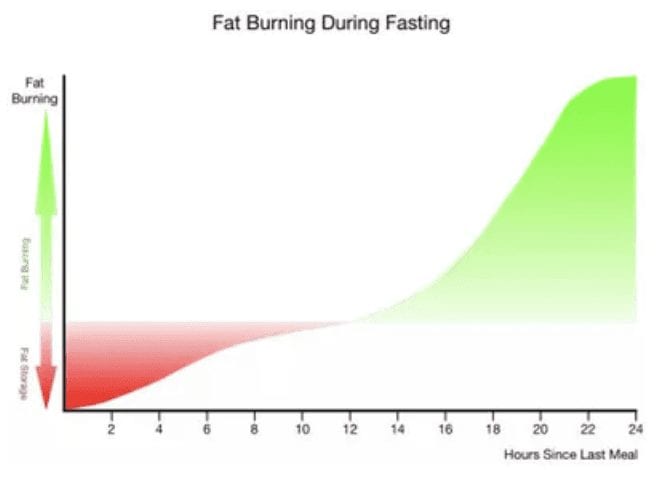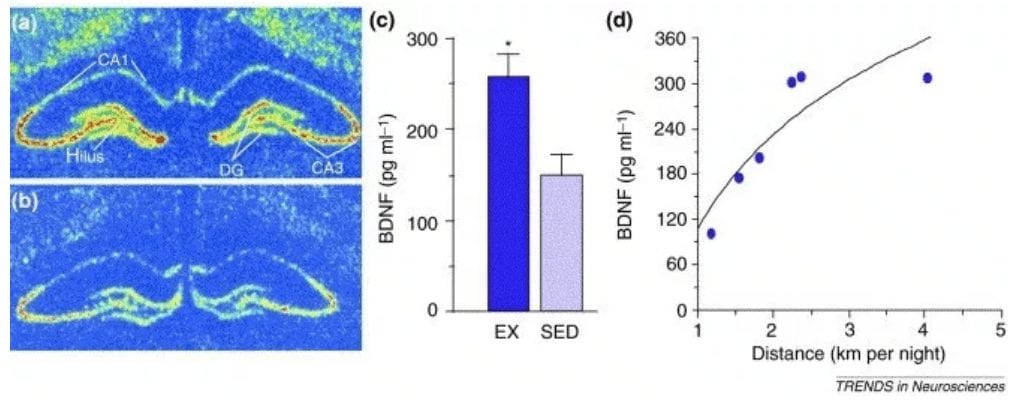What is the OMAD Diet or One-Meal-A-Day Diet?
OMAD is a form of intermittent fasting.
The most common form of intermittent fasting is fasting for 16 hours and eating for 8. Instead of eating for 8 hours, people on the OMAD diet eat for only one hour and fast for 23 hours.

Most people eat dinner as their only meal and fast again until dinner the next night.
Why would people do this?
From an evolutionary perspective, it aligns perfectly. Instead of constantly nibbling on foods, we fasted and then feasted. We hunted for a large kill throughout the day and feasted at night. We didn’t sit down as a family and drink orange juice and sugar cereal for breakfast.
Most people that do OMAD do it because they’ve experienced the tremendous benefits of fasting for 16 hours — and they want to kick them into superdrive
Many of the benefits I’ll describe of fasting below are experienced more intensely by extending the length of your fast. There are diminishing returns, but I believe that many of the benefits get stronger when increasing your fasting window from 16 to 23 hours.
OMAD Benefits: 10 Benefits of Fasting and the OMAD Diet (Part 1)
Now, to dive into 10 benefits of fasting. We will cover 5 today and 5 tomorrow.
#1: Simplicity
One of the biggest benefits of fasting is its simplicity. Fasting will completely change your relationship to food.
Most people need to plan their days around food. They plan their lives around food. If they go without food for 3 hours they will explode with hanger.
If you train yourself to fast, not only is going without food for a few hours easy. It actually empowers you.
On the OMAD diet, all you need is to plan one meal a day. You don’t need to count calories. You just eat to satiation once a day. You’ll spend much less time cooking, preparing and searching for food. And you’ll also save some money.
Learning to fast is one of the most empowering ways to take back control.
#2: Fasting Increases Insulin Sensitivity
Because of the disastrous health recommendations over the last 100 years, 100s of millions of people are insulin resistant today.
When you’re more insulin resistant, your body requires MORE insulin from your pancreas to push glucose and energy into cells. This increases the amount of insulin in your bloodstream at any given time. New research is implicating insulin resistance in almost every chronic disease.
There’s no chronic disease that’s not related to insulin resistance:
- Heart disease
- 62% higher cancer mortality
- 160% higher gastrointestinal cancer mortality
- Prostate cancer
- Alzheimer’s disease
- Aging
- Inflammation: Elevated CRP and IL-6
- Acne
Think of chronic diseases like a tree. The fertilizers are starch, grain and sugars. And insulin resistance is one of the strongest roots.

Fasting has been shown to decrease insulin and glucose levels. This study showed a 20-30% reduction in insulin levels from intermittent fasting
#3: Fasting Promotes Fat Loss
In a fasted state, you finally unlock your body fat as fuel. Remember, that’s why it’s there in the first place. Instead of just wearing your body fat as a fashion statement like a dad bod, you actually use it for energy.
This was a vital mechanism for survival when we didn’t have constant access to food. But most people have trained their bodies to lose this mechanism. If you don’t use it you lose it.
In this study, participants were encouraged to intermittent fast for 18-20 hours. They were allowed to eat whatever they chose. After just two weeks, the mean fat loss was 3lbs . 6/10 stated they’d continue fasting after the study.
In this study, 8 individuals reduced their feeding window by 4 hours. Over a course of 16 weeks on average they lost 7lbs . This is just from a 4 hour reduction. Imagine combining that with a healthier diet?
Additionally, fasting triggers epigenetic changes in your body that promote more fat burning. This study showed that fasting increased UCP3 gene expression by 5x at 15 hours of fasting This gene is responsible for fat burning in muscle cells.

Fasting is the most effortless way to eviscerate body fat.
#4: Fasting Reduces Inflammation
Fasting has been shown to reduce inflammation .
Inflammation is a key process in aging and chronic disease. Persistent inflammation has been shown to contribute to a number of diseases such as heart disease, autoimmune disorders and cancer .
Additionally, obesity is often characterized by high fasting states of pro inflammatory cytokines.
Fasting has been shown to reduce all inflammation factors such as CRP and TNF-alpha.
#5: Increases Cognition, Memory and Focus
When you fast, you’re signaling to your body that there’s no food available. Contrary to what most people believe, your body does not shut down in response. It doesn’t start playing the victim card. “Oh, woe is me! I have no food!”
It does the exact opposite. It goes into overdrive mode to find it. “The Obstacle Is the Way”.

As a result, your sympathetic nervous system activates and your body releases adrenaline, cortisol and growth hormone. Your body pushes as much stored energy into your bloodstream as possible, to use as fuel for the hunt. Cortisol, adrenaline and growth hormone prime you for action.
This is why so many people report increased cognition and heightened awareness when fasting. In this study subjects who fasted reported that they felt more awake . This study showed that fasting activated the neurotransmitter orexin-A which promotes alertness
A big reason for the classic post lunch grogginess, is because eating allows your body to finally relax. Fasting can and will help.
Additionally, fasting increases BDNF which not only maintains cognitive function but improves it .

BDNF is a neuronal growth hormone responsible for the creation of new neurons. High levels of BDNF are associated with increased intelligence, mood and memory. When you release BDNF, your brain forms new connections. Evolution selected for individuals clearly who could learn fast and think on their feet during fight or flight situations.
If you’re interested in peak performance, fasting needs to be a part of your regimen.
Onward.

